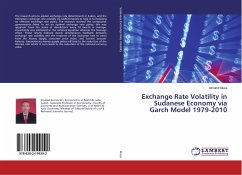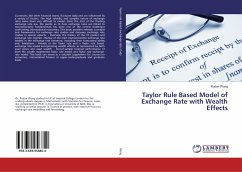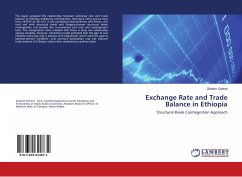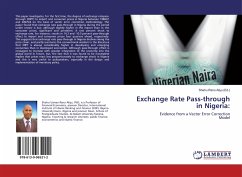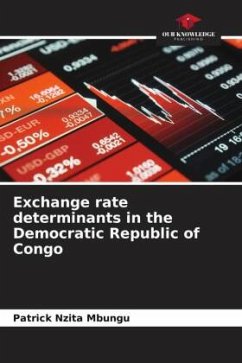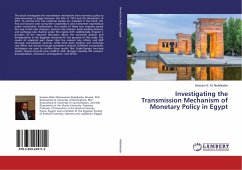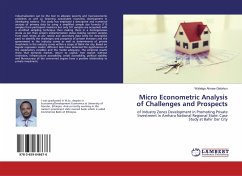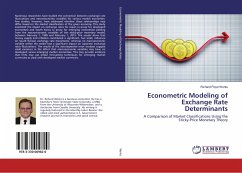
Econometric Modeling of Exchange Rate Determinants
A Comparison of Market Classifications Using the Sticky-Price Monetary Theory
Versandkostenfrei!
Versandfertig in 6-10 Tagen
43,99 €
inkl. MwSt.

PAYBACK Punkte
22 °P sammeln!
Numerous researchers have studied the connection between exchange rate fluctuations and macroeconomic variables for various market economies. Few studies, however, have addressed whether these relationships may differ based on the market classification of the given economy. This study examined the impact on exchange rates for Japan (a proxy for developed economies) and South Korea (a proxy for emerging economies) yielding from the macroeconomic variables of the sticky-price monetary model, between February 1, 1989 and February 1, 2015. The results show that money supply and inflation constitut...
Numerous researchers have studied the connection between exchange rate fluctuations and macroeconomic variables for various market economies. Few studies, however, have addressed whether these relationships may differ based on the market classification of the given economy. This study examined the impact on exchange rates for Japan (a proxy for developed economies) and South Korea (a proxy for emerging economies) yielding from the macroeconomic variables of the sticky-price monetary model, between February 1, 1989 and February 1, 2015. The results show that money supply and inflation constituted a significant, but small, influence on South Korean exchange rate movements, whereas no macroeconomic variable within the model had a significant impact on Japanese exchange rates fluctuations. The results of the autoregressive error analyses suggest small variances in the affect that macroeconomic variables may have on developed versus emerging market economies. This may provide evidencethat firms may use similar forecasting techniques for emerging market currencies as used with developed market currencies.



